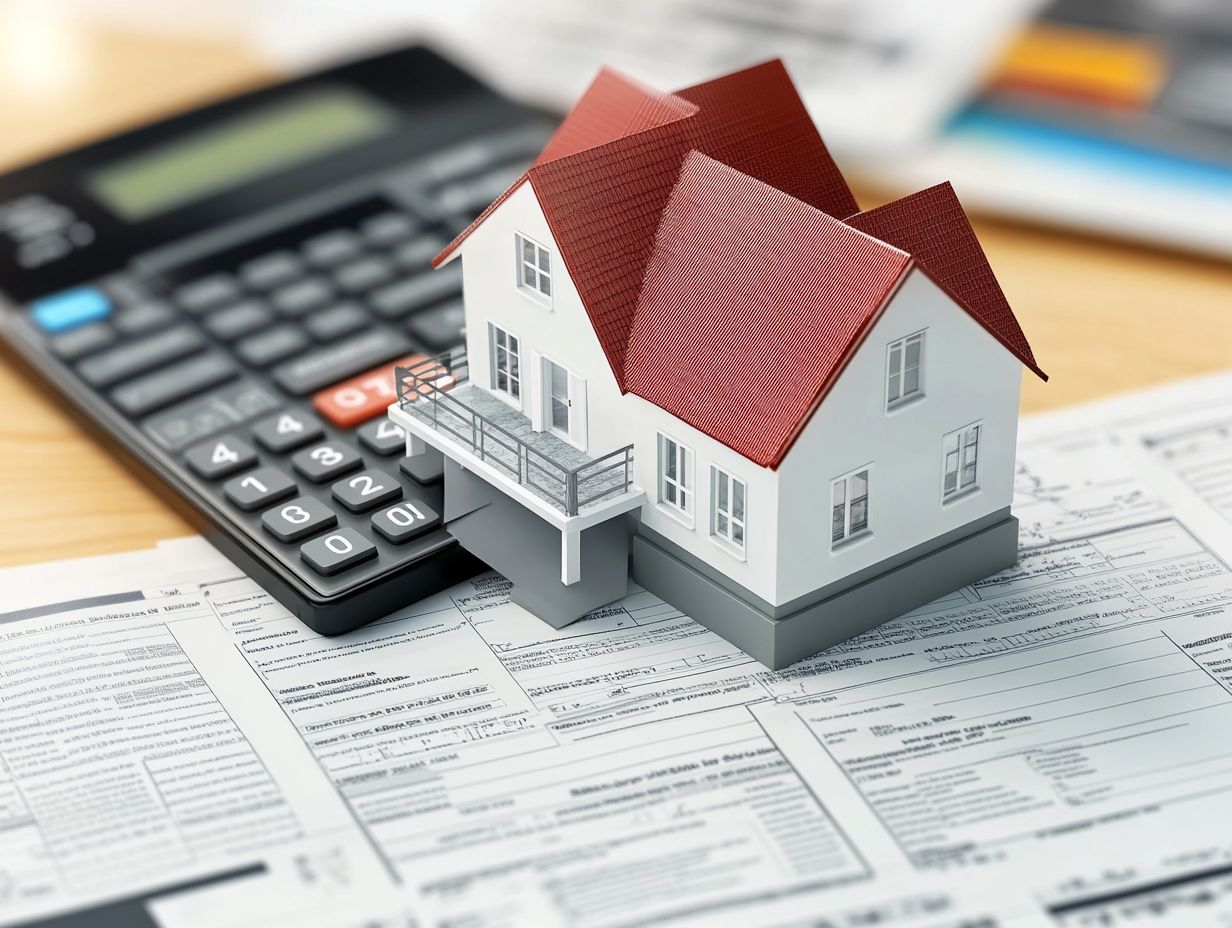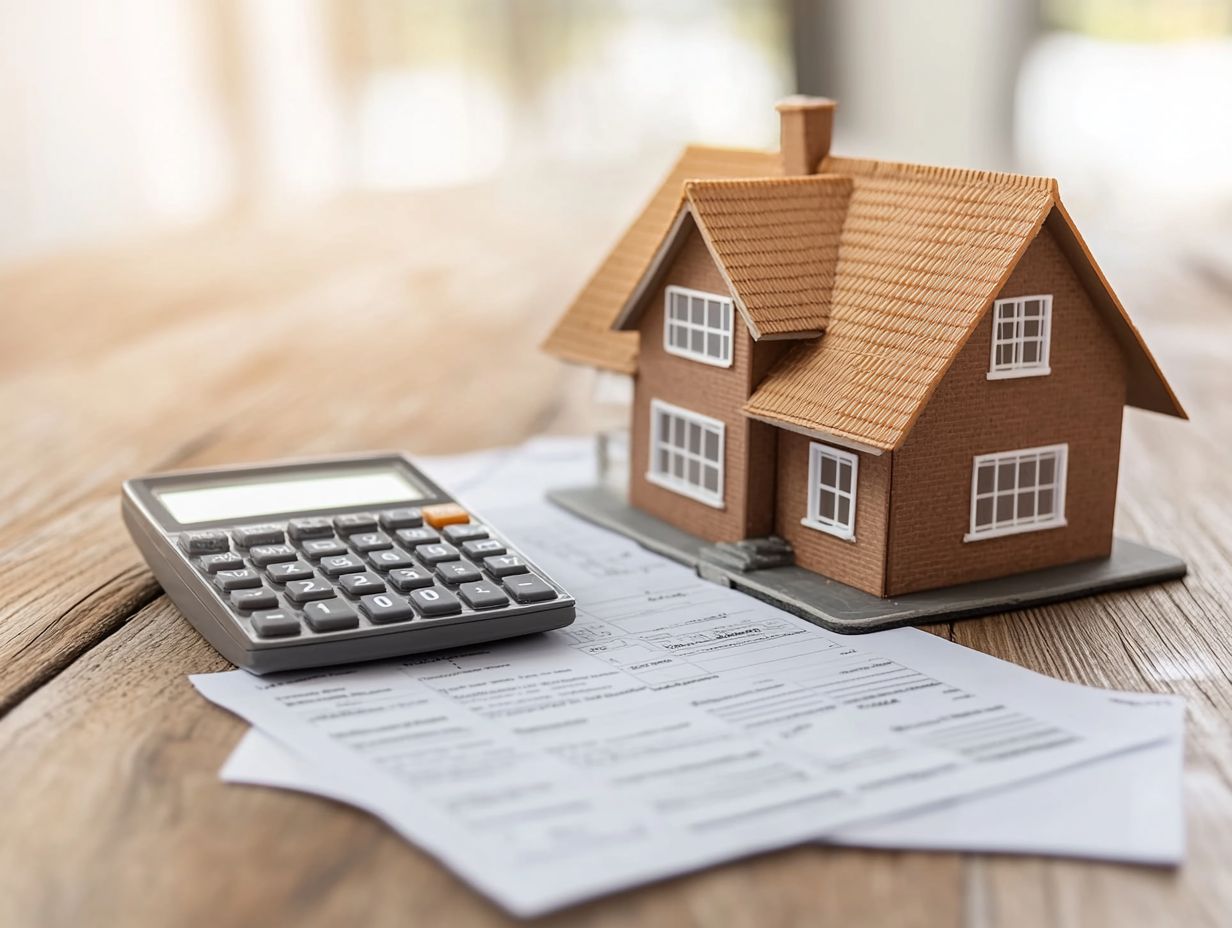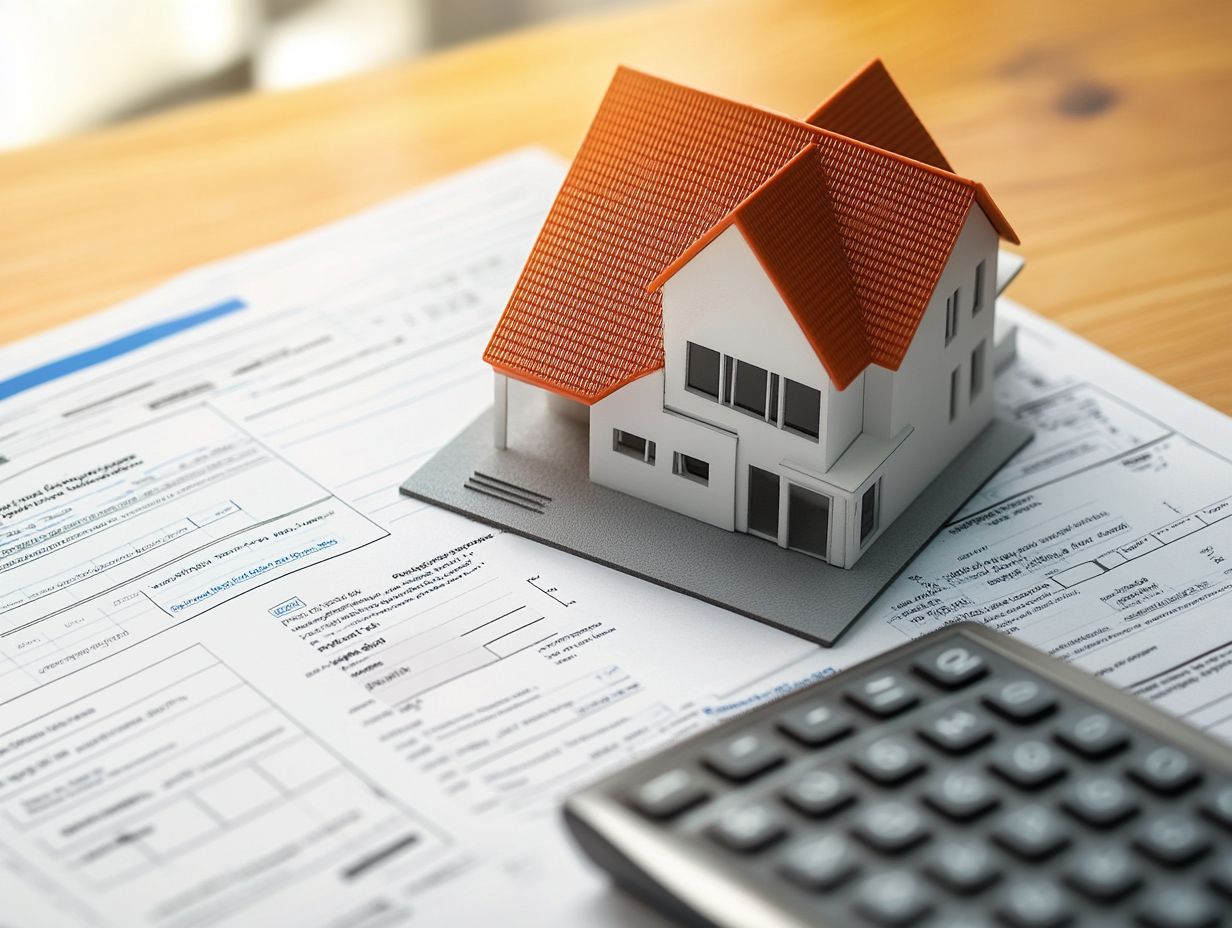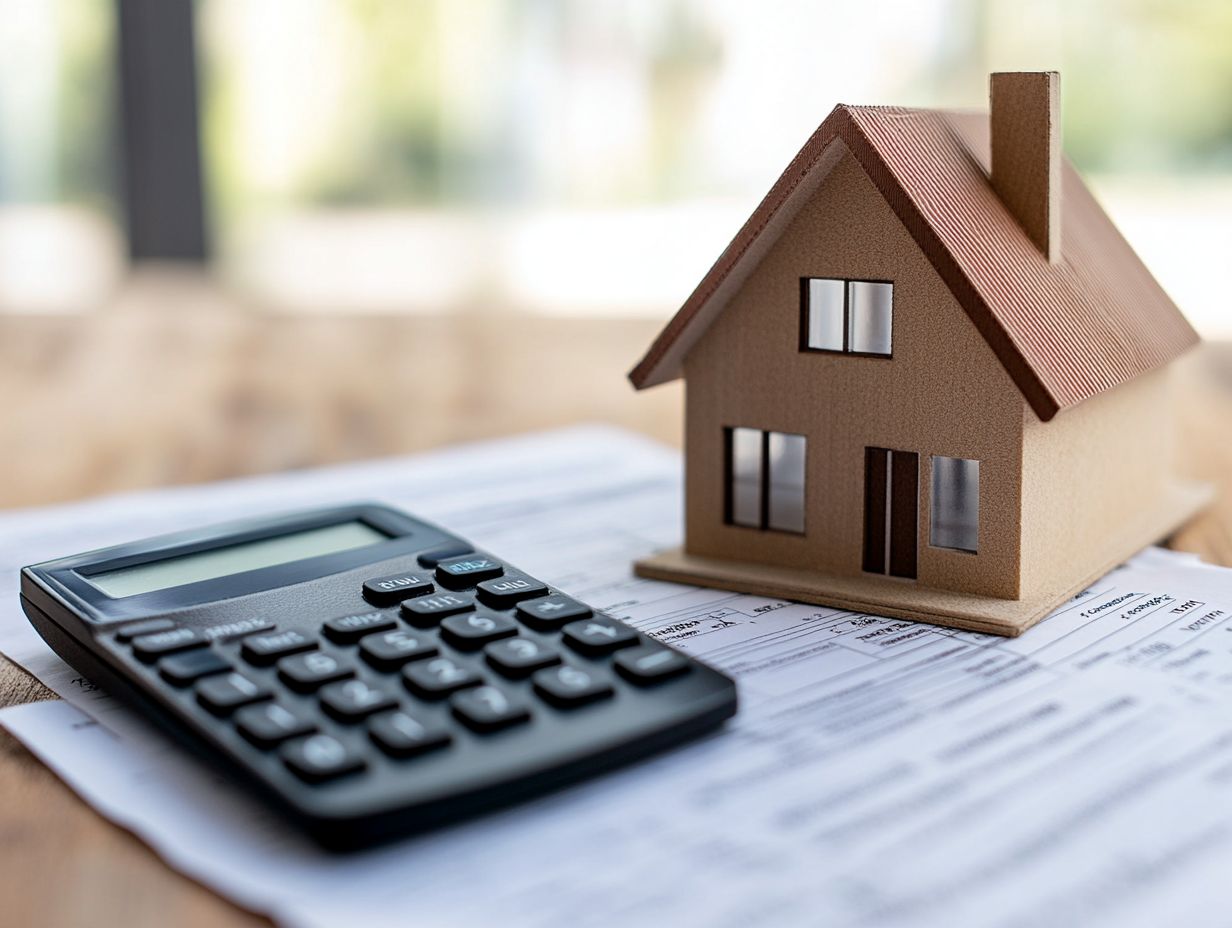What Should I Know About Property Taxes?
Property taxes can feel like a labyrinth, often leaving homeowners and potential buyers feeling overwhelmed.
Grasping the fundamentals of property taxes how they are calculated and what factors affect them is essential for making informed financial choices. This guide will empower you with all the essentials of property taxes, encompassing payment options, exemptions, and the steps involved in appealing assessments. Don t miss out on potential tax relief options that could save you money!
Whether you re stepping into homeownership for the first time or you re a seasoned property investor, this overview will arm you with the knowledge needed to navigate the realm of property taxes with confidence.
Contents
Key Takeaways:
- Property taxes are fees based on your property’s value.
- Local tax rates and property value affect how much you pay.
- Know your payment options and deadlines.
- Look for exemptions and deductions that you may qualify for.
Understanding Property Taxes
Understanding property taxes is vital for you as a homeowner or real estate investor in California. These taxes play a significant role in shaping your property ownership costs and the quality of community services.
Local jurisdictions impose property taxes based on the assessed value of your California properties. This value is determined through a thorough property assessment process.
With Proposition 13, a law that limits property tax increases, capping property tax rates, it’s essential for you to grasp how the tax calculation operates. This knowledge ensures your compliance and opens doors to potential homeowner tax relief options that could benefit you significantly.
What are Property Taxes?
Property taxes are fees that local governments impose on real estate, calculated based on the assessed value determined by the county assessor, which mirrors the property’s market value.
These taxes play a pivotal role in funding essential public services, such as education, law enforcement, and infrastructure maintenance.
The assessment process involves a thorough evaluation of various factors, including property size, location, and any improvements made. All of these contribute to its overall worth.
For you as a property owner, grasping this process is crucial. A higher assessed value can lead to increased real estate taxes, directly impacting your financial obligations.
Effectively managing property taxes ensures that local governments can meet community needs while also holding stakeholders accountable for their contributions.
How are Property Taxes Calculated?
The calculation of property taxes is a straightforward process: you take the assessed value of your property and multiply it by the local property tax rates determined by your government. This will give you the total tax liability for the fiscal year.
To arrive at assessed values, local assessors carefully evaluate each property based on various criteria, including size, location, and current market trends. This valuation serves as the foundation for calculating the taxes you owe.
You might find yourself facing supplemental tax bills if there are changes in local assessments, if new properties are constructed, or if you ve made improvements to your existing structures.
These taxes are crucial for funding essential community services, such as schools, emergency services, and infrastructure projects like roads and public parks. This highlights the importance of precise tax collection in maintaining local services and enhancing the overall welfare of your community.
Factors Affecting Property Taxes
Several factors play a crucial role in determining property taxes, particularly the location and market value of California properties.
These elements can fluctuate significantly due to varying local tax rates and the property assessment processes established by county assessors.
Location and Property Value

The location of California properties is crucial for their value. It directly impacts market assessments and the property taxes you owe.
A neighborhood’s appeal increases a property’s value. This makes it more attractive to potential buyers.
Proximity to good schools and essential services can elevate market values. Families often prioritize these amenities.
The overall health of the California real estate market is also significant. Areas seeing growth and investment usually have higher property values.
When you browse available options, you ll look for locations that offer lifestyle benefits and convenient resources.
Local Tax Rates and Assessments
Local tax rates and property assessments are vital for homeowners. Understanding them is crucial for managing your finances.
Proposition 13, enacted in 1978, limits your tax liabilities. It caps annual increases at 2% for assessed values, helping you plan financially.
Local tax rates can vary widely across California. Each area decides its tax rate based on local needs and services.
This means you could face different rates and processes depending on your neighborhood s affluence. Wealthier areas often have more investment in community services.
County assessors evaluate properties based on size, condition, and market trends. Because of Proposition 13, properties are reassessed only when sold or improved.
This can create disparities in tax burdens even within the same area. You might pay significantly more than long-term residents with similar properties.
Ways to Pay Property Taxes
Understanding how to pay property taxes is essential for homeowners. Timely payments help you avoid late fees and penalties.
Exploring payment options can greatly improve your financial management.
Payment Options and Deadlines
Homeowners have several options for paying property taxes. These include one-time payments and installment plans.
Each option has specific deadlines to avoid late fees. One-time payments have set due dates, while installment plans allow you to split payments into manageable parts.
Mark these deadlines on your calendar to ensure timely payments. Missing a deadline may lead to costly penalties.
By planning your payment schedules, you can simplify budgeting and maintain steady cash flow throughout the year.
Exemptions and Deductions for Property Taxes
Exemptions and deductions for property taxes can provide tax relief for homeowners. Benefits like the homeowners exemption can significantly enhance your financial situation.
Understanding and utilizing these opportunities can help you manage your financial obligations with greater ease.
Types of Exemptions and Eligibility

You ll find a variety of exemptions available for property taxes. The homeowners exemption and special provisions for disabled veterans stand out as prime examples that can provide substantial tax relief.
These exemptions alleviate immediate financial pressure on property owners. They also contribute to overall financial stability.
For instance, the homeowners exemption typically lowers the taxable value of your home, leading to reduced annual tax bills. Likewise, the special provisions for disabled veterans often offer additional reductions or credits, honoring their service while providing essential support.
Other exemptions may include those for seniors, low-income families, or properties designated as historic, each with its own set of requirements.
By capitalizing on these benefits, you can dramatically lower your tax bills now! This allows for more strategic allocation of your resources toward savings, education, or other essential expenses.
Appealing Property Tax Assessments
By appealing property tax assessments, you create an opportunity to contest your tax liabilities. Ensure that the assessed value set by the tax assessor truly aligns with the actual market value of your property.
This process allows you to stand up for fair taxes and protect your wallet!
Process and Tips for Appealing
The process of appealing property tax assessments involves a series of strategic steps. Start by gathering evidence to highlight any discrepancies in your property s value and submitting a well-supported appeal to the tax assessor’s office.
To kick off this process effectively, it s essential to familiarize yourself with local tax laws and deadlines, as these can vary significantly from one jurisdiction to another.
Next, collect relevant data, such as recent comparable sales in your neighborhood, professional appraisals, and photographs that capture any issues impacting your property s valuation.
Once you’ve compiled this evidence, organizing your findings in a clear and concise manner is key. This will bolster your position during the appeal. Submitting your appeal alongside the gathered documentation not only demonstrates your preparedness but also shows a serious commitment to ensuring fair taxation.
Frequently Asked Questions
What Should I Know About Property Taxes?
Property taxes are taxes paid on real estate properties, such as homes, land, and commercial buildings. These taxes are collected by the local government and are used to fund public services and projects within the community.
How are property taxes calculated?

Property taxes are calculated by multiplying the assessed value of your property by the tax rate set by the local government. The assessed value is determined by the local assessor’s office based on the market value of your property (the value determined by the local government based on market comparisons).
What factors influence the amount of property taxes I have to pay?
The amount of property taxes you have to pay is influenced by several factors, including the location and value of your property, local tax rates, and any exemptions or deductions you may be eligible for.
When are property taxes due?
Property taxes are typically due once or twice a year, depending on the local government’s schedule. The due dates vary by location, but they are usually around the end of the year or beginning of the year.
What happens if I don’t pay my property taxes?
If you fail to pay your property taxes, your local government may charge penalties and interest, and even place a tax lien on your property. In extreme cases, they may even foreclose on your property to collect the unpaid taxes.
Are there any ways to reduce my property taxes?
Yes, there are several ways to reduce your property taxes, such as taking advantage of tax exemptions and deductions, appealing the assessed value of your property, and staying informed about any changes in local tax rates. It is also helpful to regularly review your property tax bill and make sure you are not being overcharged.







